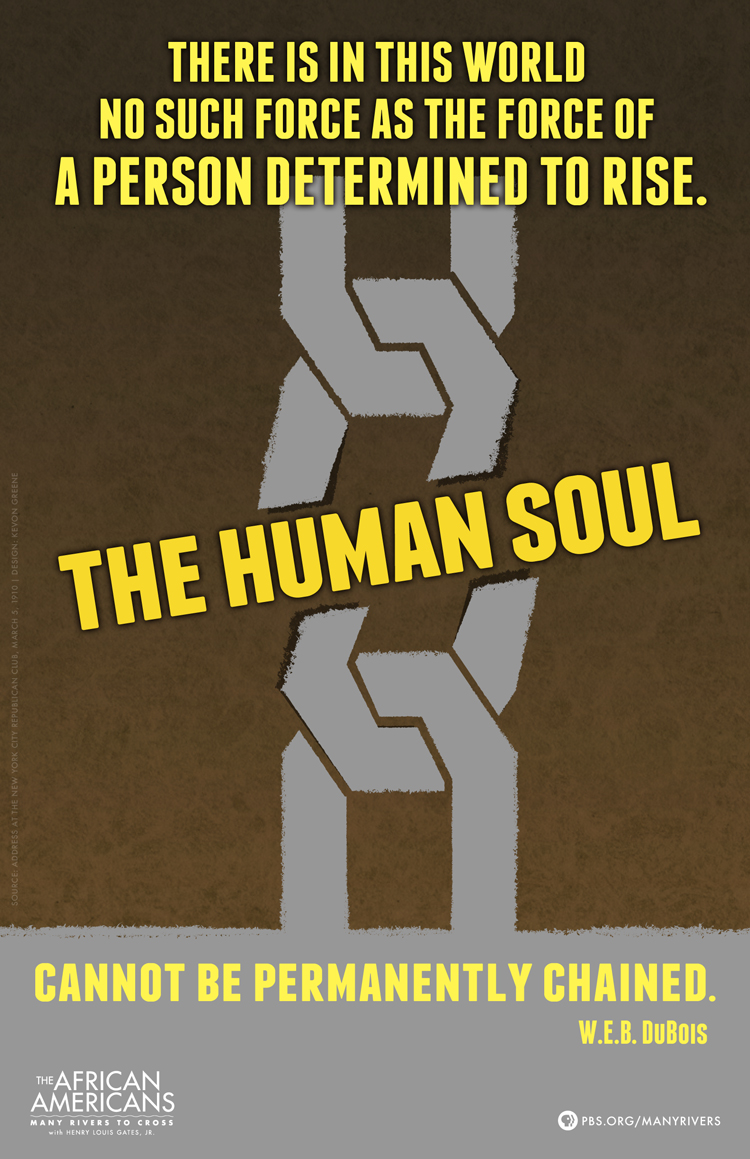
W.E.B. DuBois
William Edward Burghardt (W.E.B.) DuBois studied at Fisk University, and then Harvard University, where he became the first African American to earn a doctorate. He published his seminal work, The Souls of Black Folk, in 1903, a collection of essays that touch on a wide range of topics including equal rights, stereotypes, and critiques of black leadership at the time. Along with William Monroe Trotter, DuBois led The Niagara Movement, an early black civil rights organization DuBois helped found in 1905. He was highly critical of the Atlanta Compromise, an 1895 agreement between African-American leaders and Southern white leaders that stated Southern blacks would not challenge current white political rule in exchange for basic access to education and due process in law. In 1909, DuBois co-founded the still active National Association for the Advancement of Colored People (NAACP), an organization dedicated to ensuring “the political, educational, social, and economic equality of rights of all persons and to eliminate racial hatred and racial discrimination.”
Find educational resources related to this program - and access to thousands of curriculum-targeted digital resources for the classroom at PBS LearningMedia.
Visit PBS Learning Media





